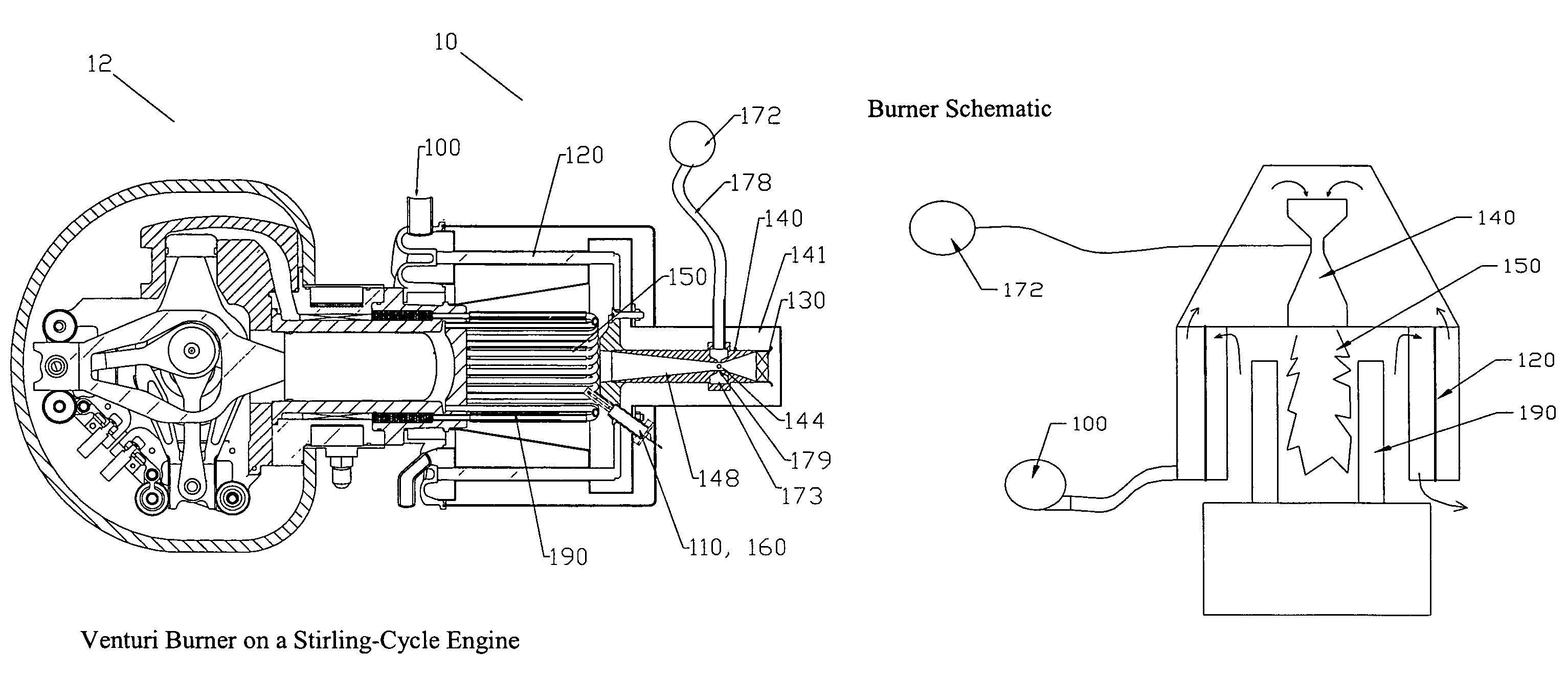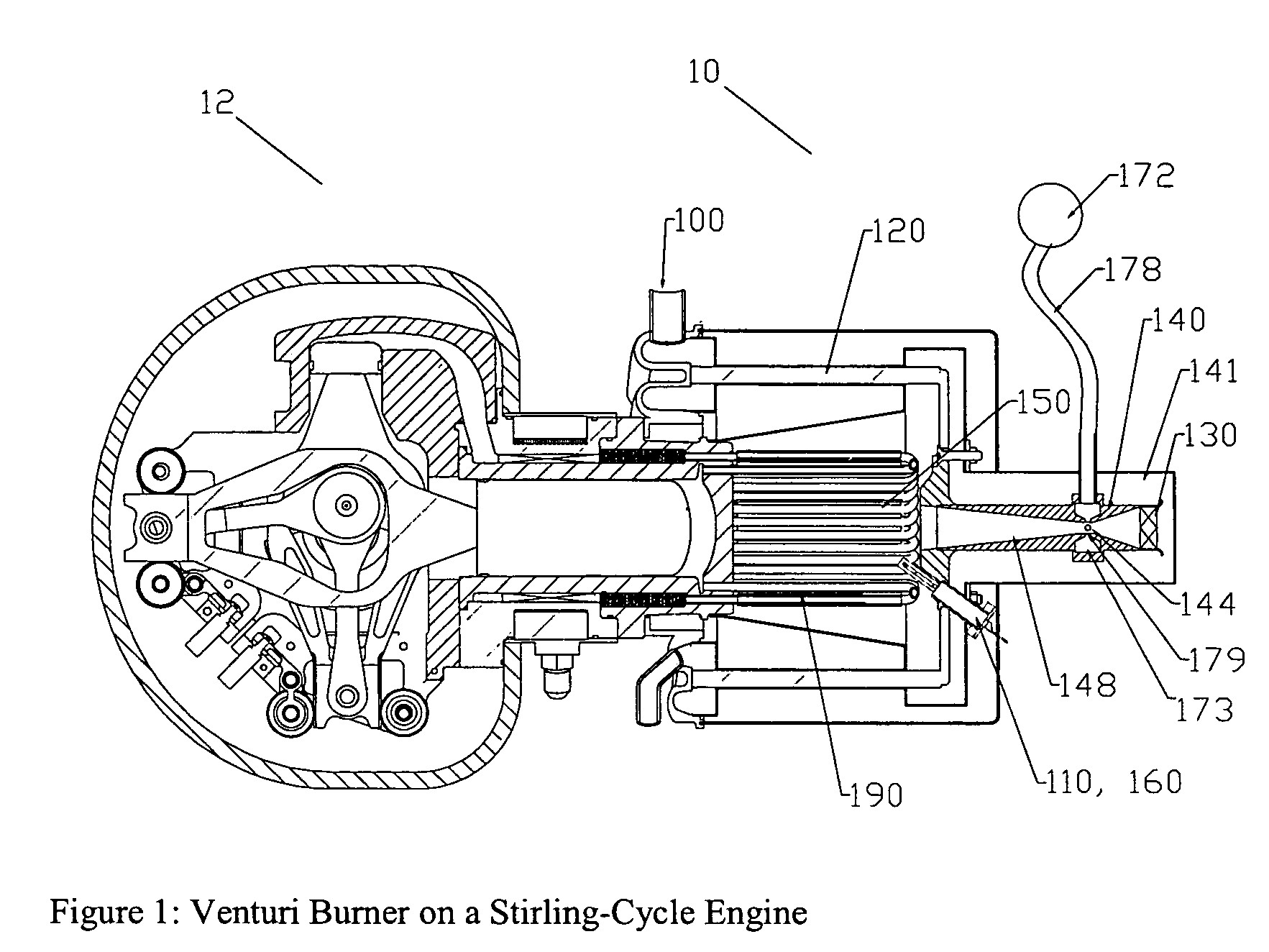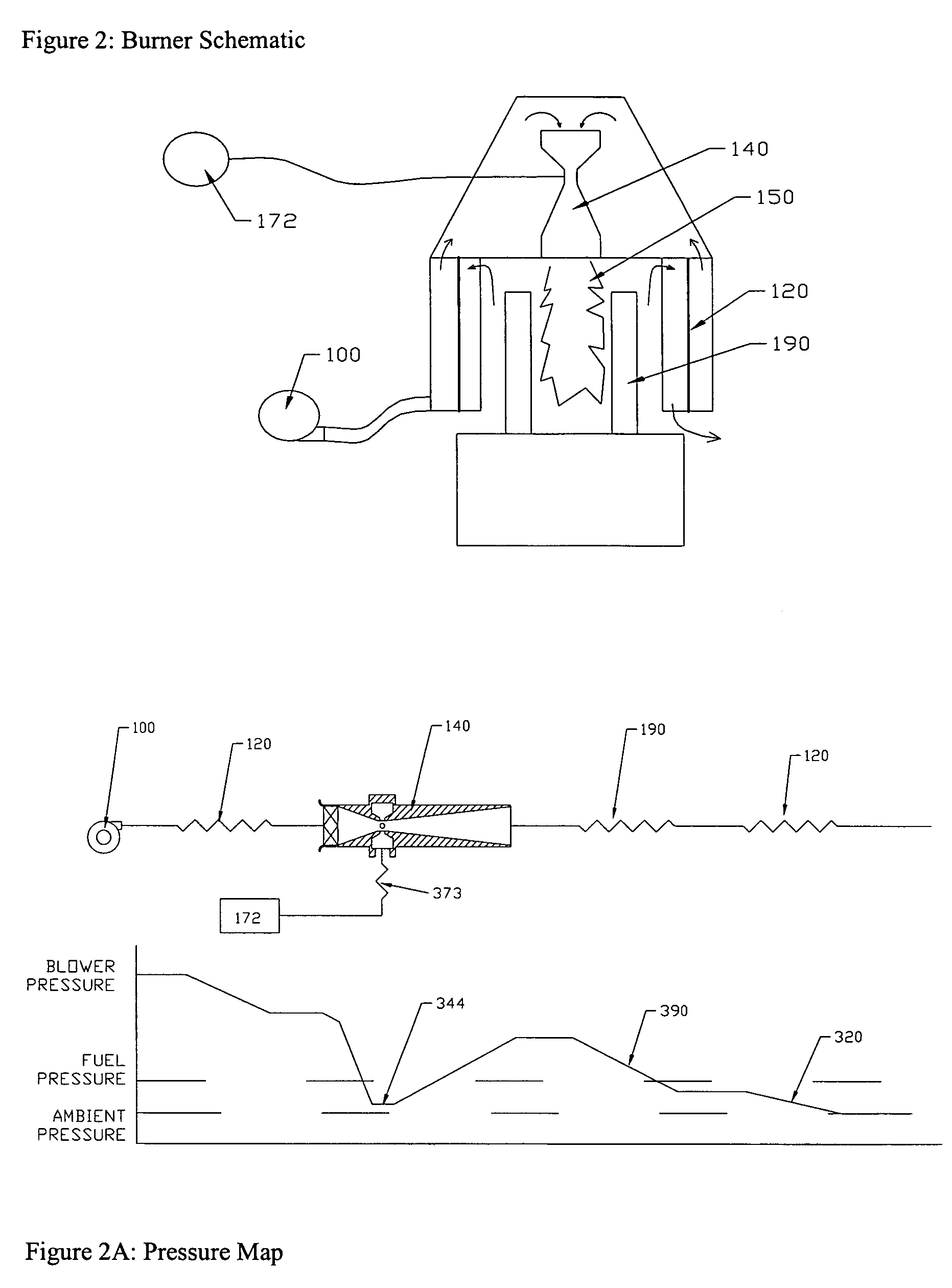Gaseous fuel burner
- Summary
- Abstract
- Description
- Claims
- Application Information
AI Technical Summary
Benefits of technology
Problems solved by technology
Method used
Image
Examples
Embodiment Construction
[0025]Definitions: As used in this description and the accompanying claims, the following terms shall have the meanings indicated, unless the context otherwise requires: Fuel-Air Equivalence ratio (φ)=Actual Fuel-Air Mass Ratio / Stoichiometric Fuel-Air Mass Ratio. The stoichiometric fuel-air mass ratio is defined as the mass ratio needed to balance the fuel+air chemical equation. The stoichiometric fuel-air mass ratio is well known for common fuels such as propane (0.0638 g fuel / g air) and calculable for gases such as biogas.
[0026]FIG. 1 illustrates an embodiment of the invention in the exemplary application of a gaseous fuel burner system as a gaseous fuel burner 10 for a Stirling cycle engine 12. Although, this embodiment of the invention is described specifically in the context of a Stirling cycle engine, embodiments of the invention are not limited to such applications. Those skilled in the art will appreciate that the present invention may have application in other systems, such...
PUM
 Login to View More
Login to View More Abstract
Description
Claims
Application Information
 Login to View More
Login to View More - R&D
- Intellectual Property
- Life Sciences
- Materials
- Tech Scout
- Unparalleled Data Quality
- Higher Quality Content
- 60% Fewer Hallucinations
Browse by: Latest US Patents, China's latest patents, Technical Efficacy Thesaurus, Application Domain, Technology Topic, Popular Technical Reports.
© 2025 PatSnap. All rights reserved.Legal|Privacy policy|Modern Slavery Act Transparency Statement|Sitemap|About US| Contact US: help@patsnap.com



